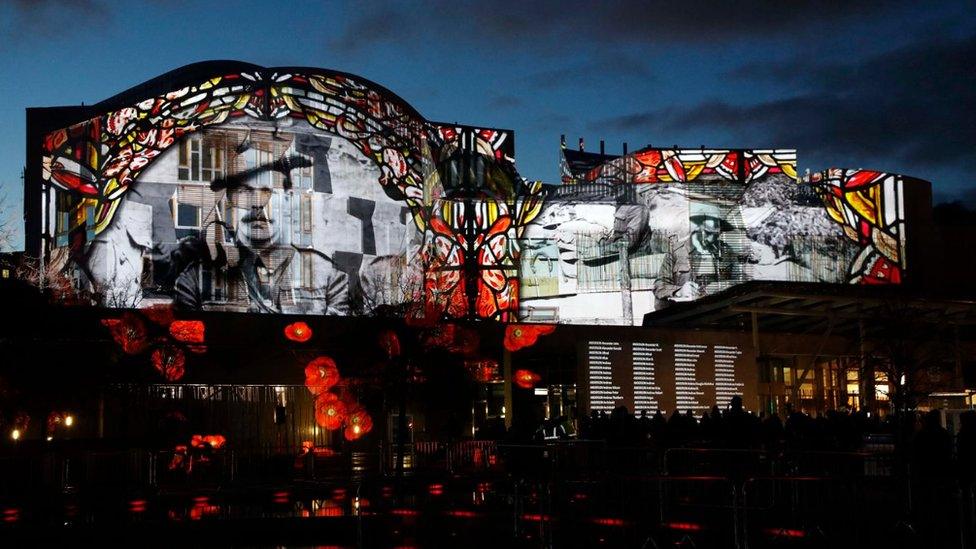Scotland falls silent in remembrance
- Published
Events to remember the fallen took place across the country
People across Scotland have observed a two-minute silence in an act of remembrance marking 100 years since the end of World War One.
It was one a series of commemorative events taking place on Armistice Day.
Before sunrise, pipers around the country played the traditional Scottish lament Battle's O'er.
And large crowds gathered at ceremonies of remembrance in Glasgow and Edinburgh, where the first minister laid a wreath.
After four years of bloody conflict, the war between the Allied forces and Germany finally ended in 1918.
The armistice signed in Compiègne came into force on the 11th hour of the 11th day of the 11th month.
Of the 700,000 Scots who joined the forces, more than 100,000 died during World War One.
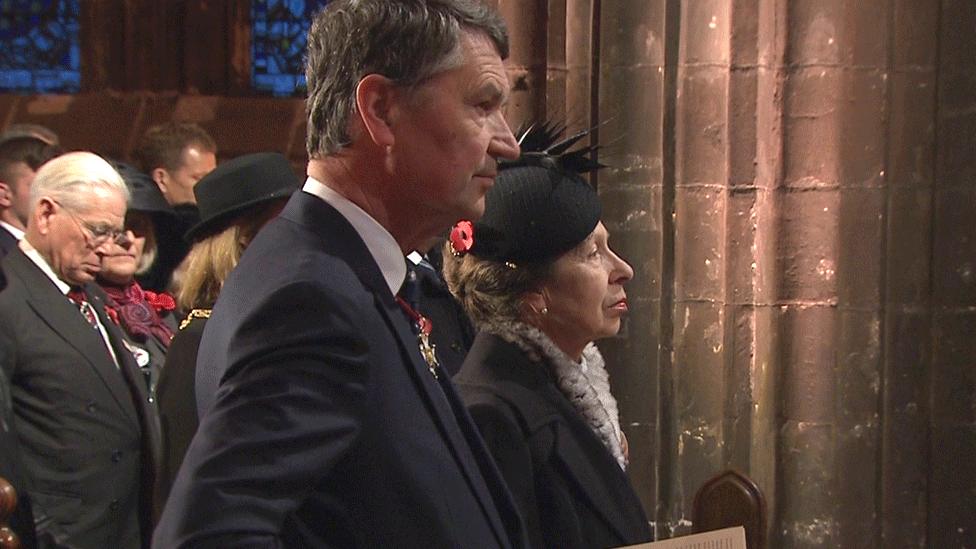
The Princess Royal attended a commemoration service at Glasgow Cathedral with her husband Vice Admiral Sir Timothy Laurence
Nearly every village, city and town in Scotland has some form of memorial displaying the names of their war dead.
Across the UK, the centenary was marked with gun salutes before the two-minute silence at 11:00.
Following the period of quiet observation, First Minister Nicola Sturgeon laid a wreath at a ceremony at the Stone of Remembrance outside the city chambers in Edinburgh.
Nicola Sturgeon observes Armistice Day silence in Edinburgh
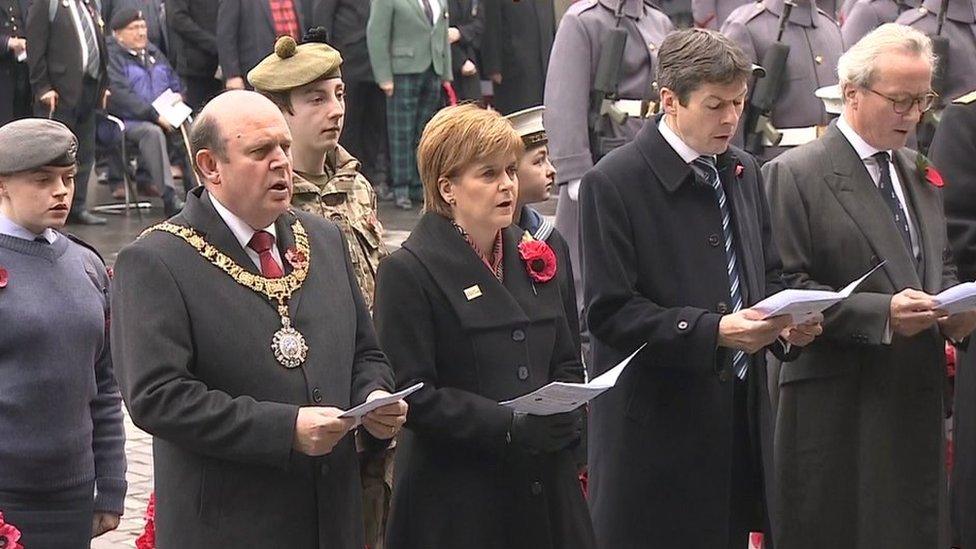
First minister Nicola Sturgeon and Presiding Officer Ken Macintosh were among those at the Edinburgh remembrance service.
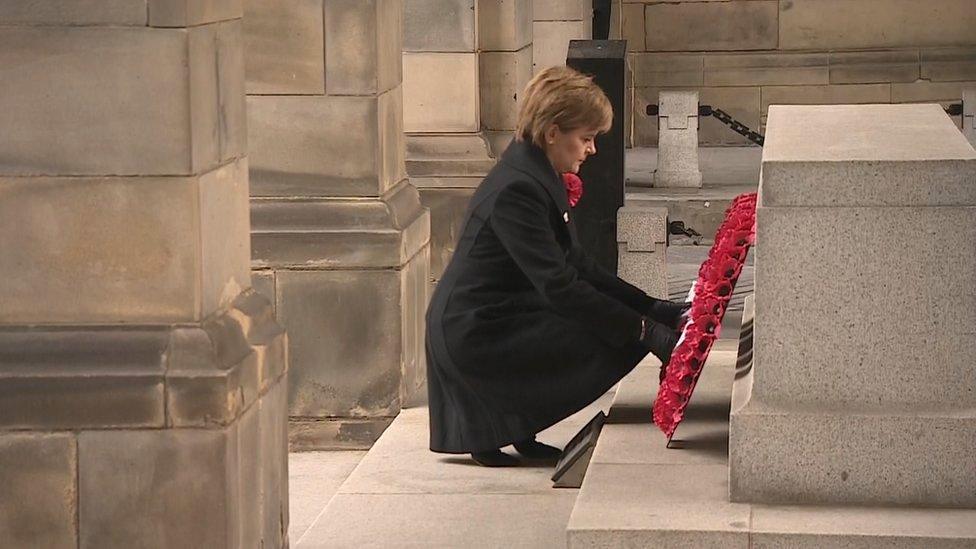
She did so after 11 rounds were fired from Edinburgh Castle, with the guns then falling silent.
Ms Sturgeon joined fellow politicians and members of the armed forces for the ceremony before a service at St Giles Cathedral.
Following the service, the city thanked all those who served with a procession and service of commemoration in the Old Town.
Elsewhere, the silence was observed at the cenotaph in Glasgow's George Square, as it was at war memorials in towns and villages across Scotland.
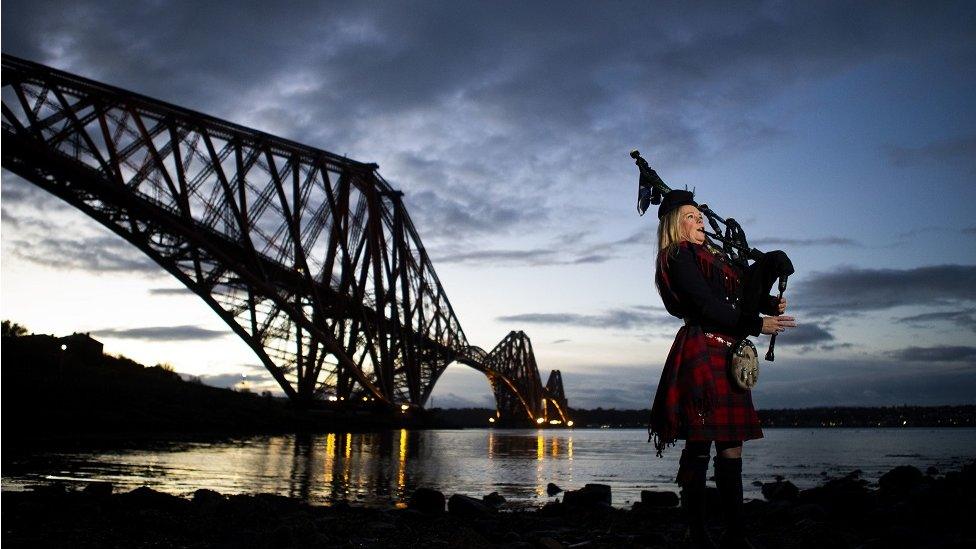
Piper Louise Marshall played Battle's O'er, the traditional Scottish lament played at the end of battle, at dawn
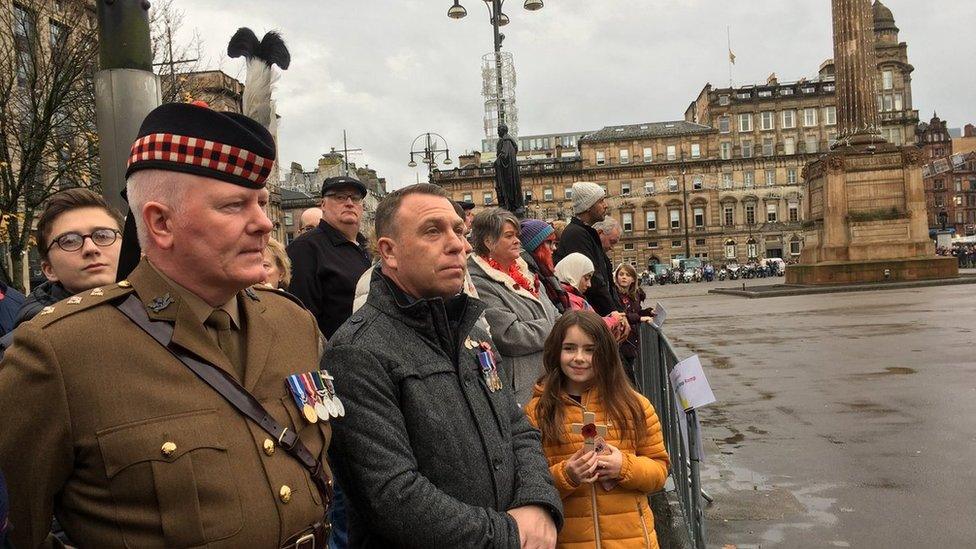
Crowds gathered in Glasgow's George Square for the service of remembrance
Lord Provost Eva Bolander, in her role as Lord Lieutenant, led the proceedings in George Square, with a guard of honour provided by the 52nd Lowland, 6th Battalion of The Royal Regiment of Scotland.
After laying her wreath, Ms Sturgeon told BBC Scotland: "Remembrance Sunday is always a very poignant occasion. It's our opportunity to express our gratitude to those who made the ultimate sacrifice in conflicts across the last century.
"Today has an added poignancy as we mark the centenary of the end of the First World War. For those of us in today's generations, it is very difficult to comprehend the scale of loss of the First World War.
"But today's an opportunity to express our gratitude but also to learn the lessons of that conflict so that we may hope that we may never see the like."
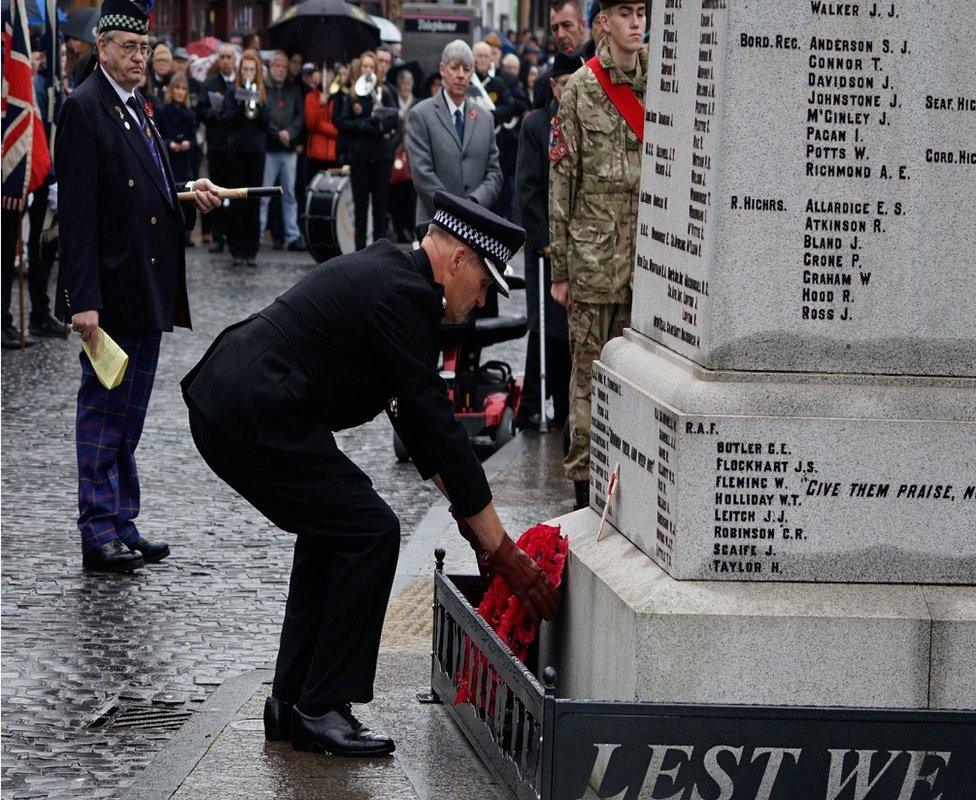
People have taken part in services of remembrance the length and breadth of Scotland, including this one in Dumfries and Galloway
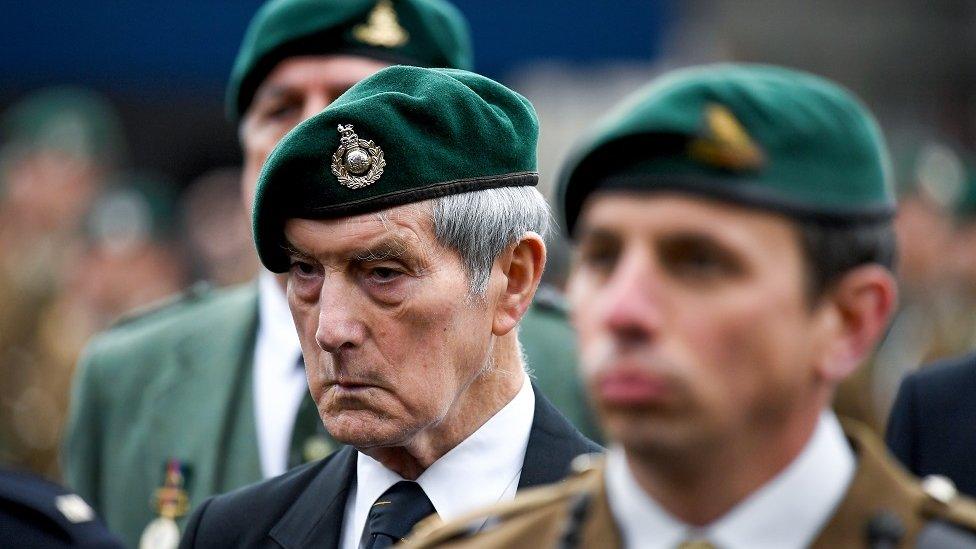
The two-minute silence was also observed in Fort William
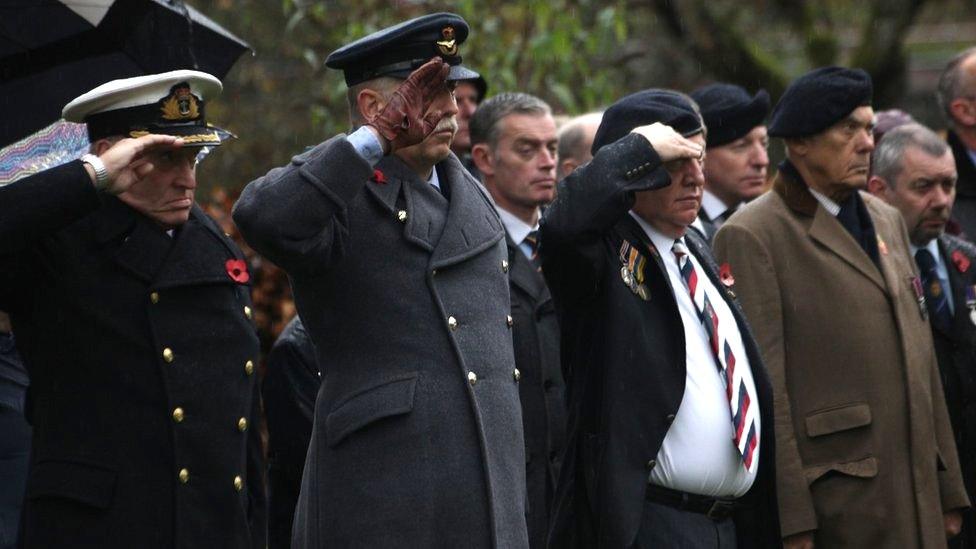
Veterans also paid their respects at the war memorial in Dunblane
The Princess Royal joined dignitaries at Glasgow Cathedral for a service of commemoration broadcast live on BBC One Scotland.
Organisers said the service would have a "multigenerational focus", with the National Youth Choir of Scotland singing alongside the Glasgow Cathedral Choir.
Meanwhile, on beaches across the UK, large-scale portraits of a casualties from the conflict were drawn in the sand and washed away as the tide comes in.
Masterminded by filmmaker Danny Boyle, he has described it as an "informal nationwide gesture of remembrance".
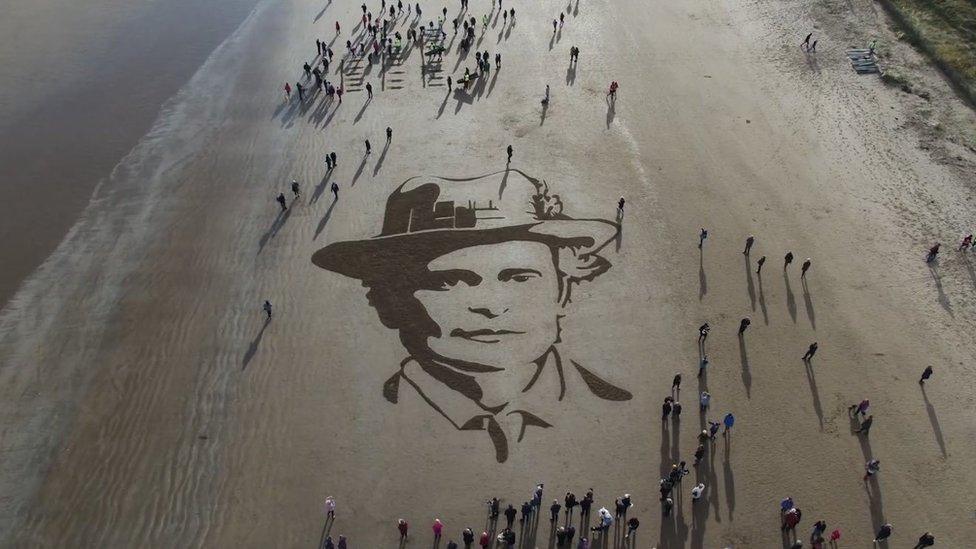
A large portrait of Dr Elsie Inglis has been raked into the sand on West Sands beach in St Andrews
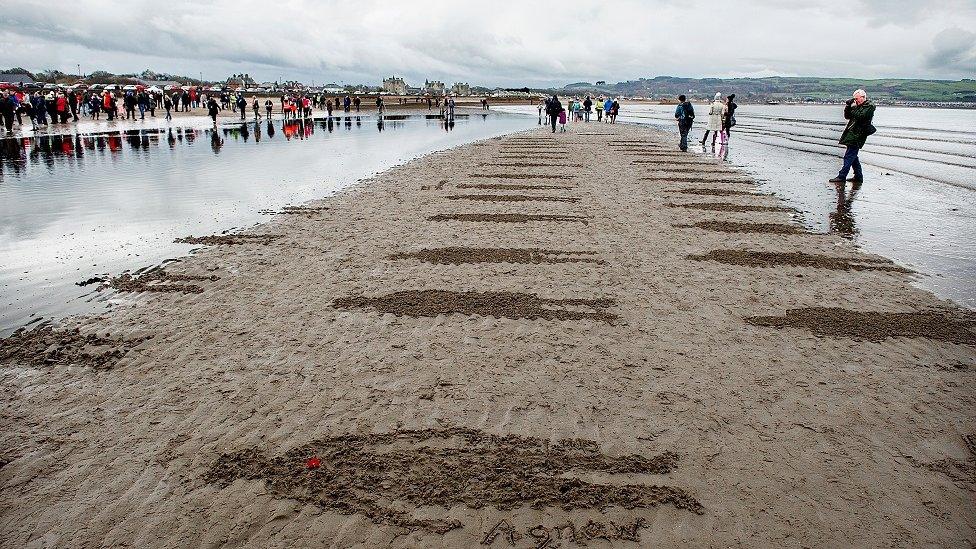
Representations of soldiers on Ayr beach poignantly disappear under the water
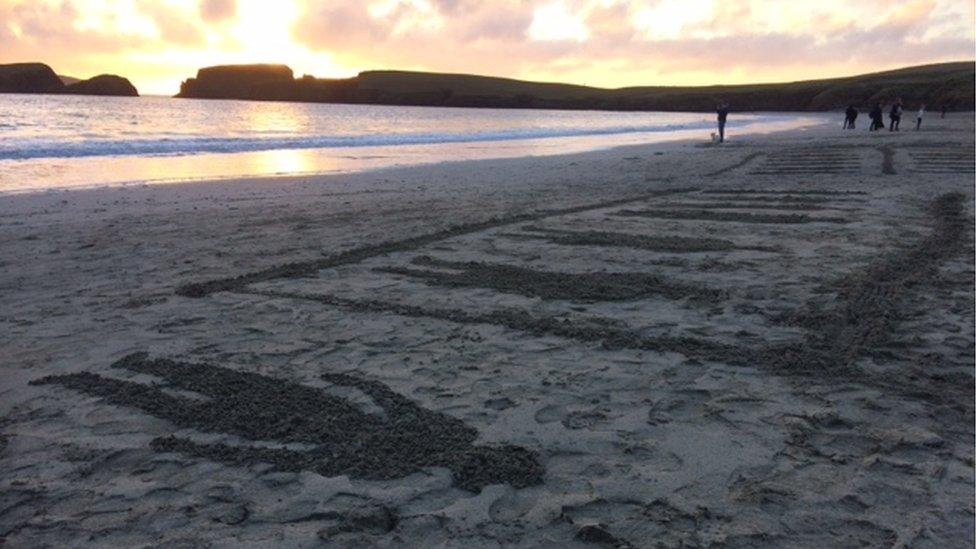
Soldier artwork on St Ninian's beach, Shetland
In Scotland, the large-scale art projects took place at Ayr beach; West Sands in Fife; Scapa beach, Orkney; St Ninians beach, Shetland; Roseisle beach, Moray; and Culla Bay on Benbecula.
After dark, the devastating human cost of the war was laid bare at the Scottish Parliament, as the names of 134,712 men and women were projected on to the building.
They died serving Scotland during the war and included servicemen, munitions workers and nurses.
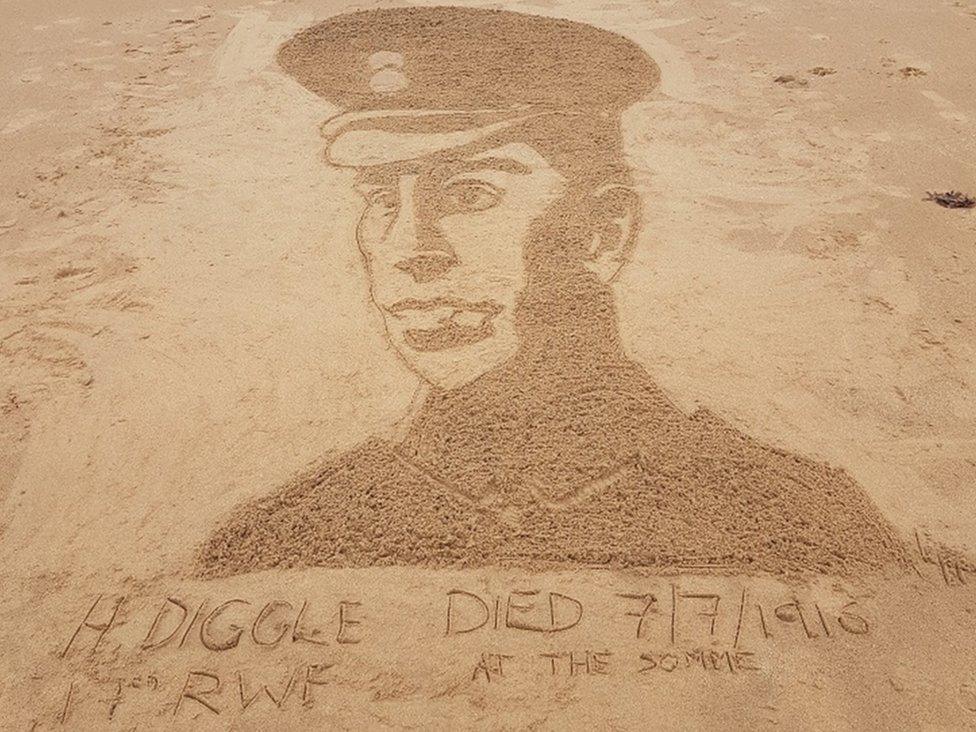
Laura Henderson etched this picture of her great great uncle, Sgt Harry Diggle, into the sand at Ayr beach
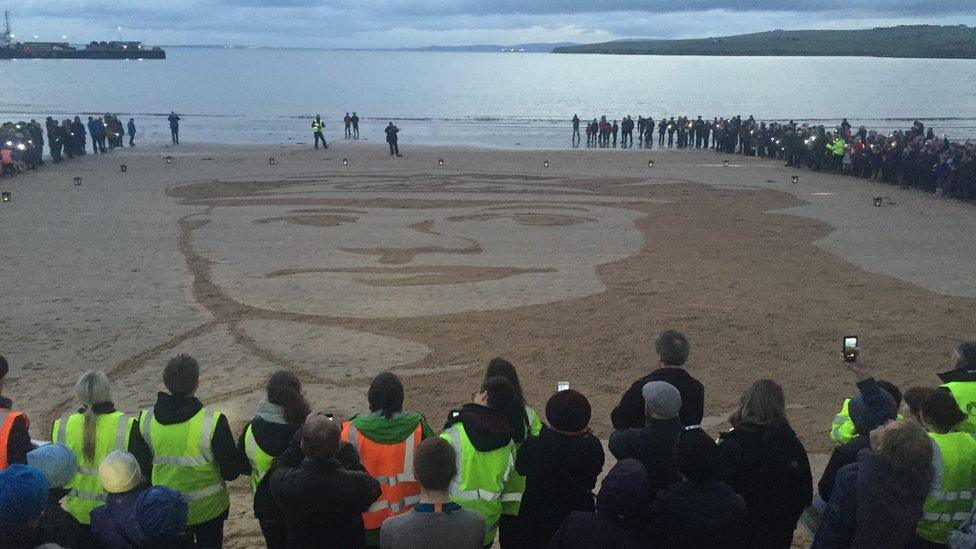
A crowd of 2,000 people watched a portrait of Lieutenant Robert William Taylor get etched into the sand at Scapa beach in Orkney
Presiding officer Ken Macintosh said: "The fact it will take seven hours to project the names of all those who died reflects the sheer scale of the loss and devastation the war had on communities right across Scotland."
The Last Post sounded at 18:55 before beacons were lit across the country, including at UK's most northerly point at Unst in Shetland.
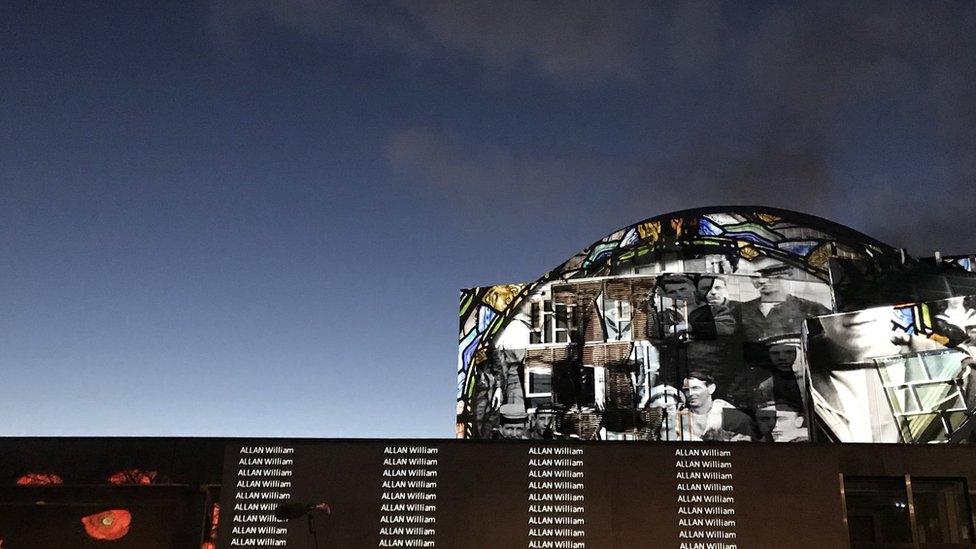
The names of Scotland's war dead projected on to the side of the Scottish Parliament building
